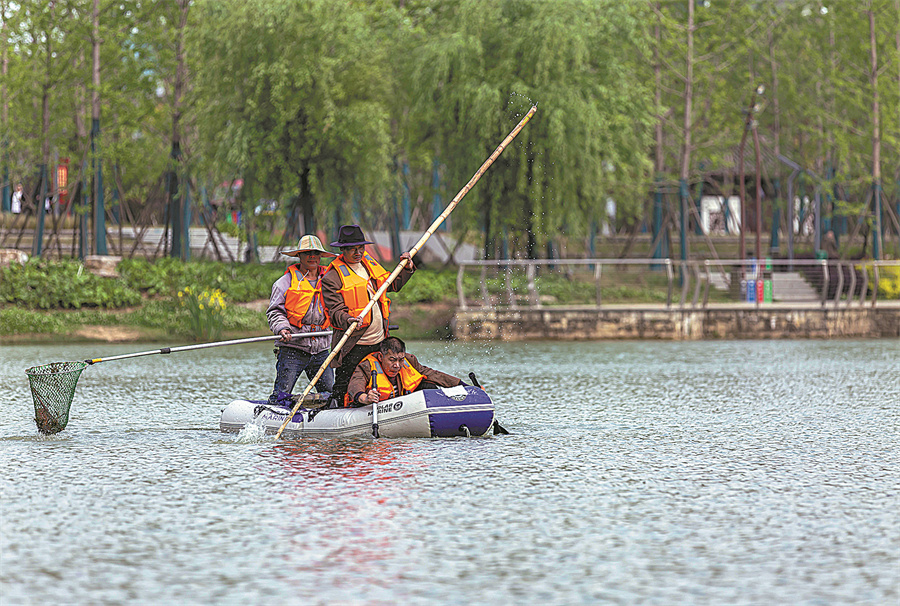Think tank continues to help drive nation's green agenda


Evolving with the times
Zhang Jianyu, executive director of the BRI Green Development Institute and a special adviser to the council, has worked with the CCICED for 17 years. "China was still in the process of learning from the world," he said, referring to the council's early days.
At that stage, the CCICED was in a position to offer advice, he said. For example, climate change was one of the issues on which it exerted great influence.
In 1997, the Kyoto Protocol, the first major global agreement on the reduction of carbon dioxide emissions, was signed. In 2001, the United States withdrew from the protocol.
However, during the initial five years, the council's foreign members and advisers mentioned climate change frequently on many occasions, which helped China's leaders recognize and attach importance to the issue, Zhang said.
Rather than influencing specific government policies, the frequent comments sent a signal that the international community was treating global warming as a real issue, and the world also expected China to treat it seriously, he added.
By 2005, when he started working with the council, it had entered a new stage that featured cooperation between Chinese and foreign experts to seek ways of safeguarding the country's environmental progress, Zhang said. Essentially, Chinese experts started working in equal positions to their foreign counterparts in the council.
As China forges ahead with its own development path, the council has adopted the role of offering insights on whether certain policies are heading in the right direction and if they are really a priority in international interests, he added.
"Former premier Wen Jiabao said that the CCICED's operations will not cease until China's environmental problems have been solved," he said.
"However, the economic, trade and political situations confronting China are changing, and the council's ultimate goal is always to tackle the country's environmental problems."
Initially, the council's core task was to target domestic problems, but the focus has altered in accordance with changes in situations, he said.
For example, the rise in imports has seen China consuming large numbers of commodities, including palm oil, from other countries. The country is expected to become increasingly dependent on imports of primary products, such as minerals, so it has to take the environmental impact on other countries into consideration, he added.
Against this backdrop, Zhang said the environment and trade have been in the council's research spotlight for some time, and it has been working on ways to regulate them.
























